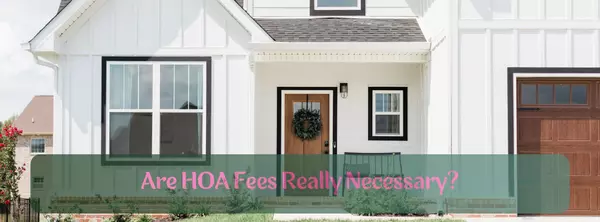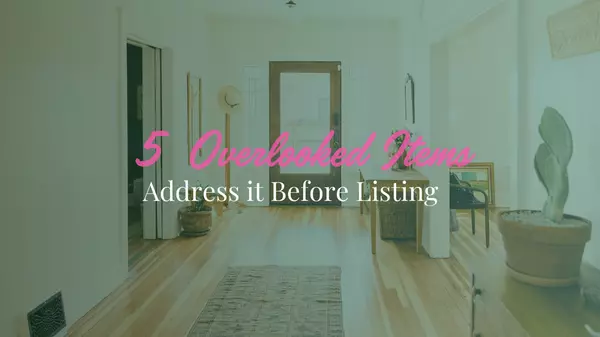

Are HOA Fees Really Necessary?
In addition to mortgage payments, homeowner’s insurance costs, andproperty taxes, some homes are also located within a planned communitythat requires monthly HOA fees. HOA (Homeowner’s Association) costsmay feel like junk fees that add little to no benefit to the homeowner, butthese fees serve several essential purposes aimed at preserving thecommunity’s quality and property values. Primarily, HOA fees are typically used to fund the maintenance and repairof community spaces. They also pay for utilities and upkeep of communityamenities such as a pool, sports courts, playgrounds, and exercisefacilities. Often these amenities are a critical draw to potential homebuyersthat keep property values higher than communities without these facilities.In addition, the HOA fees usually provide payment for a reserve fund. Thisfund guards the residents from unexpected repair costs. Without reserves,the association members could be liable for thousands of dollarsout-of-pocket should such an expense occur. The amount due from each homeowner in an HOA may vary based on thesize of the property or the subdivision it’s located in, but this shared cost isfor the good of the community. All members are eligible to join themembership meetings and run for the Board of Directors (usually if in goodstanding). It’s important to be involved in the decisions made and costsincurred. HOA fees are not junk fees, but community members should be involved inthe assessment and administration of the funds they generate. A properlymanaged HOA ensures that the homeowners receive the lifestyle theyexpect and maintain strong home values.
Read More

How to Determine a Good Area for a Short-term Rental
Owning a successful short-term rental home is more than just finding agreat property. Choosing a home to invest in is the only aspect of theinvestment, the area is just as important. Just as you would before openinga store or restaurant, careful analysis should take place to determine theopportunities an area offers. Here are a few key factors to consider: · Local Demand and Tourism – The best locations have some kind ofindependent demand, such as amusement parks, beaches or mountains,or other popular vacation destinations. · Amenities – People enjoy pools, parks, and shopping whilevacationing. Consider what activities and amenities are available to renters. · Local Regulations – Carefully investigate the local laws andregulations governing short-term rentals. Some communities only allow 30+day rentals or even longer (if at all). · Competition – Review existing short-term rentals in the area andcheck pricing. Spot check a few of the most appealing for availability tolearn about vacancy rates. Make sure the prices and availability fit withyour cost model. · Seasonality – Consider whether the area has peak seasons withslower months in between. Understand the trends and plan for loweroccupancy and pricing during the low season. · Growth and Development – Understand the future developmentplans in the community. Planned improvements may offer increaseddesirability for the rentals. A short-term rental can be a powerful addition to your investment portfolio.Carefully selected and managed, these rentals can offer significant incomewhile appreciating in value over time. Before choosing a home, ensuresuccess by carefully considering the location. The desirability of the area isone of the most crucial factors in a successful short-term rental business.
Read More

Should You Offer Financial Concessions when Selling?
When selling your home, at some point the question of financialconcessions will arise. These may be credits for closing costs, repairs, orupgrades and these incentives may improve your ability to sell the home,especially if the home is not in turn-key condition. Yet these do reduce theprofit from your sale, so before you make the decision, consider youroptions. First, understand the current market. In a buyer’s market, where supplyexceeds demand, adding financial concessions can make your home moreappealing to the limited buyer pool. Conversely, if you are in a seller’smarket, making extra concessions may not be necessary to attract buyers.Second, consider the condition of your home and how it compares to otherproperties on the market. If you know that you need repairs or updates thatmay deter buyers, then offering additional funds up front may make yourhome more appealing. Often, buyers have upgrades and changes in mindalready and these funds may encourage them to choose your listing overthe competition. Finally, understand your timeline and goals. If you want to move quickly andhave the equity to do so, an aggressive financial concession may allow youto sell more quickly. Making concessions is a strategic tool you and youragent should discuss. In a slow market, it may mean the differencebetween selling quickly or lingering on the market. Understanding theimpact of concessions allows you to maximize your chances of asuccessful sale.
Read More
Categories
Recent Posts











